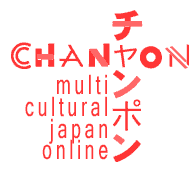2004年05月27日 木曜日
Japan's DRM Leadership?
by Justin Hall
Technology
Japan often leads the world in technological innovation. Often this gives the rest of the world a chance to see how people there react to new technologies. The Japan Times is carrying coverage of Digital TV restrictions that are confusing and confounding Japanese TV consumers.
Basically, this is one of the world's wide rollouts of "DRM" (digital rights management) technologies for television. So if you have one of the wonderful crisp, modern TV sets available in Japan, you can watch a high fidelity digital signal, but you can't copy or edit the show on your computer.
Why would you want to? Each time I go to Japan, I am mesmerized by the advertisements - excellent digital effects, superlative editing, quirky attitudes. This likely means I won't be able to make my own Japanese advertisement compilation to take home. Or how about those shows where they interview craftsment slaving away on traditional arts in the deep countryside? Has there been a problem with people taping and distributing those shows? At best I would want to show those to my friends - "look at the beauty of Akita." Now that's criminal behavior, requiring elaborate technical circumvention!
I've never seen much pirate media in Japan; maybe I wasn't hanging out in the right neighborhoods. Japanese is spoken by 120 million people in a fairly well-regulared country; are they worried that samurai dramas starring guys with loose plastic baldcaps are going to be dubbed and sold on the streets of Kowloon?
This effort is being driven in large part by NHK. NHK makes a wide variety of shows; it's hard for me to believe that the 49th Enka review of the week is worth protecting at the cost of creativity. Most television is deeply ephemeral; people who want to copy and distribute it are helping preserve culture so we can see what innovative media can be fashioned out of old clips.
Compare that with another island nation, where people drive on the same (wrong) side of the road and enjoy tea thoroughly: England's venerable house of televised culture the BBC announced a widespread digital sharing of their cultural archives.
These announcements were made roughly at the same time; a rough experiment in cultural nurturing and preservation. We'll be able to see who has more interesting art and media production resulting over time.
Posted by Justin Hall at 2004年05月27日 04:27

Comments
The interesting thing to me is how the broadcast flag may in fact be a contradiction to the culture and attitude of fair use in Japan. I'm sure there are other examples, but I am immediately think of doujin manga, the non-mainstream comics that often borrow established mainstream characters from the corportate comic world and repurpose them for their own stories.
It suggests to me a precedent for sharing, or as some say "re-mixing" culture. The broadcast flag is anti-thetical to this. You can't copy programs and use them for your own purposes, be they creative or not.
I have to wonder why this attitude towards "IP" in Japanese culture may be changing. I think part of the answer is that global capitalist culture is supplating Japanese culture in this area, and global capitalist holds strict control of IP as a cultural norm.
So maybe this is part of the reason why this is allowed to happen, on a larger scale.
That said, I don't know a lot about media ownership in Japan (just personal experience), though I'm really curious to find out more. I think that's a big piece of the puzzle. Does sony own any of the other stations?
Much of the DRM debate in Japan seems to center around Sony, at least as I see it. So questions about their ownership, investment, but especially, questions about their decisionmaking carry special import.
I just happened on this site; it contains some very interesting articles.
I understand the unlikeliness of the programs you mentioned being digitized and bootlegged, but it strikes me that you didn't mention anime. The english-speaking internet has a thriving anime fansub distribution network. These episodes are fan-translated and subtitled and often become available less than 48 hours after airing in Japan. The original files are captured by 'raw providers' living in Japan who use their video cards to digitize the TV broadcast.
Your article made me think of a few questions: If TV content is actually protected as you say, how are the raw providers doing it? Are they taking it off regular old analog broadcasts?
It could be that anime digitizing is a big part of NHK's motivation. Above and beyond fansubbing in other countries, anime is so expensive in Japan that the prospect of collecting a series for free is pretty attractive. Some new anime have included warnings against Net distribution, and looks like the anime companies are gearing up for an RIAA-style showdown against domestic downloaders.
NHK, as you're probably aware, requires a paid subscription based loosely on the honor system, implemented as a shame system, where people come door to door and tell you that if you have a television in your house, you must pay a fee. Recidivist non-payers are sometimes greeted with a loudspeaker outside their home where the NHK person will loudly announce "Mr. So-and-so, please pay your NHK fee!" hoping that this will embarrass you into a prompt payment.
Maybe actually paying the fee could entitle you to a stream without the "no-copy" bit enabled, so that subscribers get shows that could be copied and replayed fair-use style.
Jim, I'm fairly sure that even though you pay your NHK fee, you would still receive broadcasts with the no-copy bit enabled.
NHK's got bigger problems than DRM, however. Recent corruption scandals within NHK are having the effect that many people are refusing to pay their NHK fees. And why would you, when you know that money is being misused?